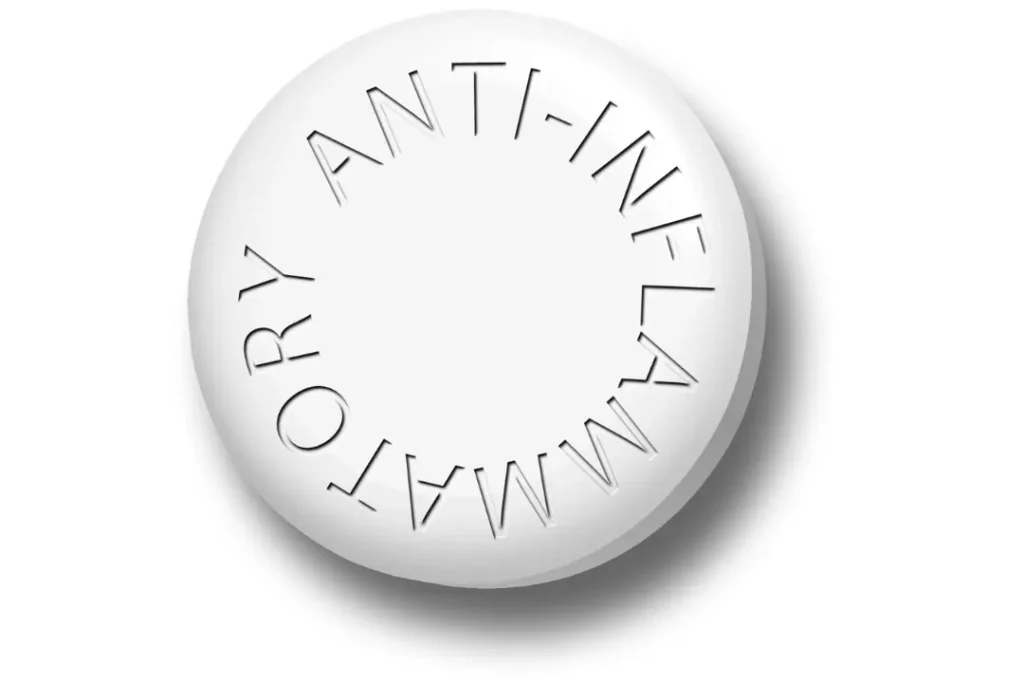Chuchuhuasi, also known as Maytenus macrocarpa, is a tree that is native to the Amazon rainforest and is used in traditional medicine. Since ancient times, members of indigenous cultures have relied on it for a variety of medicinal purposes, mainly as an anti-inflammatory, analgesic, and immune system modulator. This article examines the nature of Chuchuhuasi as a nutritional supplement and covers its possible health advantages, as well as its ideal dose, potential adverse effects, potential drug interactions, and responsible usage.
Best Nootropic Supplements on Amazon for Boosting Brain Performance—Shop Now!

You May Also Like:
Cognitive Health Extra Strength Supplement vs Medicine Man Plant Co.’s The Brain Pill
Chuchuhuasi: Benefits, Dosage, Side Effects, Drug Interactions, and Other Important Information is an original (NootropicsPlanet) article.
The Nature of Chuchuhuasi
The Chuchuhuasi tree is recognizable by its very thick bark, which is known to contain a number of different bioactive chemicals. The most important of them are the terpenoids and the flavonoids, which belong to different families of phytochemicals and are known for the positive effects they have on human health. The anti-inflammatory and analgesic effects of Chuchuhuasi are thought to be due, in particular, to the presence of triterpenoids in the plant.
The precise chemical composition of Chuchuhuasi changes based on the unique conditions under which the tree develops and the place at which it is cultivated. In spite of this, some of the most important molecules found in the Chuchuhuasi tree are maytenin, pristimerin, and tingenone, which are all members of the triterpenoid class.

Health Benefits of Chuchuhuasi
In many cultures, Chuchuhuasi is said to have a wide range of beneficial effects on one’s health, including the reduction of pain and inflammation as well as the enhancement of one’s immune system. It is used to treat a broad variety of ailments, such as arthritis, rheumatism, back discomfort, and even the common cold and flu.
Recent scientific research has shown encouraging findings that are consistent with these time-honored applications. For instance, it has been established that the triterpenoid chemicals that are present in Chuchuhuasi, notably maytenin and pristimerin, have powerful anti-inflammatory and analgesic activities. These substances work to prevent the production of prostaglandins, which are molecules of the signaling pathway that have a role in inflammation and pain.
In addition, studies have shown that Chuchuhuasi may have positive effects on the immunological system. Studies have shown that the phytochemicals found in Chuchuhuasi have the potential to increase the development of white blood cells, hence increasing the body’s capacity to defend itself against infectious agents.
It is interesting to note that the possible advantages of Chuchuhuasi extend to include one’s mental health as well. Animal research suggests that some chemicals found in Chuchuhuasi may have neuroprotective effects, presumably as a result of the antioxidant activity such substances possess.

Chemistry of Chuchuhuasi
Chuchuhuasi is a plant from a member of the Celastraceae family and has a chemistry that is both rich and complicated. Terpenes, namely the triterpenoids maytenin, pristimerin, and tingenone, as well as a variety of flavonoids, are the primary bioactive components found in Chuchuhuasi. Flavonoids are present as well.
The anti-inflammatory and analgesic effects that the plant is known for are due to these chemicals. Pristimerin, for example, is an ideal option for the treatment of inflammatory illnesses since it is known to suppress nuclear factor-kappaB (NF-kB), a protein complex that regulates many genes that are involved in inflammation. This makes it a good choice for treating inflammatory conditions.
Experience Restful Sleep with Amazon’s Best Sleeping Supplements—Shop Now!
Physiological Mechanisms of Action of Chuchuhuasi
As stated, the terpenoids that are found in Chuchuhuasi are principally responsible for the physiological effects of this plant in which they are capable of inhibiting the creation of prostaglandins, which are lipid chemicals that have a role in the inflammatory response of the body. Furthermore, the anti-inflammatory and analgesic effects of Chuchuhuasi come from the plant’s ability to block the synthesis of certain signaling molecules.
Chuchuhuasi may potentially have an effect on the regulation of the immune system. According to many studies, the bioactive chemicals found in Chuchuhuasi have the potential to increase the formation of white blood cells, which in turn improves the body’s ability to defend itself against infectious agents. This can strengthen the immune response and assist in the process of warding off diseases.
In addition, there is some evidence from the study that Chuchuhuasi may have neuroprotective qualities. Studies conducted on animals have shown that the bioactive chemicals found in the plant might lessen the oxidative stress in cerebral regions, which could possibly protect against neurodegenerative illnesses.
Even if the present study on Chuchuhuasi’s chemical and physiological mechanisms of action has shown some promise, there is still a lot more to learn about them. This is an essential point to keep in mind. To completely comprehend the intricate dynamic at play between Chuchuhuasi’s bioactive chemicals and the impact those compounds have on the human body, further study is required.

Optimal Dosage of Chuchuhuasi
Because there are no universally accepted recommendations, it might be difficult to ascertain the correct amount of Chuchuhuasi to consume. In addition, individual factors such as your age, weight, and general health state have a considerable impact on the correct dose.
Chuchuhuasi is traditionally taken in the form of either a tea or an alcoholic tincture, and the amounts taken might vary greatly. Drinking a tea that has been prepared by adding around one teaspoon of Chuchuhuasi bark to one cup of water and that then drinks anywhere from once to three times per day is thought to be safe for most individuals. However, before beginning a Chuchuhuasi regimen, it is essential to discuss the matter with a qualified medical professional.
Experience Enhanced Mood with Amazon’s Best Stress Relief Supplements—Shop Now!

Side Effects of Chuchuhuasi
Although Chuchuhuasi is usually thought to be harmless for the vast majority of people, certain persons may be more sensitive to its effects than others. These may include pain or discomfort in the gastrointestinal tract, such as nausea and diarrhea. People who suffer from autoimmune illnesses should use extreme care around this substance because of the possibility that it may stimulate their immune systems.
Potential Substance Interactions with Chuchuhuasi
In terms of interactions with other substances, the fact that Chuchuhuasi inhibits the manufacture of prostaglandins may have the potential to interact with anticoagulant and antiplatelet medications, which would make the likelihood of experiencing bleeding more likely.
Responsible Use of Chuchuhuasi
Even though Chuchuhuasi may have positive effects on one’s health, it is essential that it is used in a cautious manner. Before beginning a regimen, you should discuss your intentions with your primary care physician or another qualified medical professional. This is of utmost significance, for those who already suffer from a preexisting health problem or who are taking other drugs because there is not enough information available on its safety, you should not use Chuchuhuasi as well.
In conclusion, Chuchuhuasi provides a fascinating combination of conventional wisdom and up-to-date scientific study. It has the potential to be beneficial for the treatment of a wide variety of diseases and disorders, from inflammation and pain management to possibly neuroprotection and support for the immune system. It is anticipated that Chuchuhuasi’s significance as a good dietary supplement will be further reinforced as research continues to explain the rich chemistry and physiological activities of Chuchuhuasi.

Chuchuhuasi:
Conclusion
Chuchuhuasi, also known as Maytenus macrocarpa is an indigenous plant with a long history of traditional use and is renowned for its potential health benefits. Chuchuhuasi is believed to exhibit a wide range of beneficial effects on one’s health such as anti-inflammatory properties, immunomodulatory effects, and boosting mental health. The anti-inflammatory property of Chuchuhuasi is believed to support joint health and alleviate discomfort. With its rich history and potential wellness properties, Chuchuhuasi is definitely a botanical treasure that is worth studying and exploring. As with any natural supplement, it is important to seek advice from your doctors before incorporating Chuchuhuasi into your wellness routine. Do source from trustworthy sellers to obtain only high-quality Chuchuhuasi supplements from the market.
Best Multivitamins on Amazon for Enhanced Brain and Body Health—Shop Now!

References:
- Maytenus macrocarpa (Ruiz & Pav.) Briq.: Phytochemistry and Pharmacological Activity. Retrieved from: https://www.ncbi.nlm.nih.gov/pmc/articles/PMC6630539/
- Triterpenes from Brazilian Medicinal Plant “Chuchuhuasi” (Maytenus krukovii). Retrieved from: https://pubs.acs.org/doi/10.1021/np960390w
- Chuchuhuasi – Uses, Side Effects, and More. Retrieved from: https://www.webmd.com/vitamins/ai/ingredientmono-1475/chuchuhuasi#:~:text=Chuchuhuasi%20is%20a%20tree.,used%20as%20a%20flavoring%20agent.
Important Note: The information contained in this article is for general informational purposes only, and should not be construed as health or medical advice, nor is it intended to diagnose, prevent, treat, or cure any disease or health condition. Before embarking on any diet, fitness regimen, or program of nutritional supplementation, it is advisable to consult your healthcare professional in order to determine its safety and probable efficacy in terms of your individual state of health.
Regarding Nutritional Supplements Or Other Non-Prescription Health Products: If any nutritional supplements or other non-prescription health products are mentioned in the foregoing article, any claims or statements made about them have not been evaluated by the U.S. Food and Drug Administration, and such nutritional supplements or other health products are not intended to diagnose, treat, cure, or prevent any disease.


